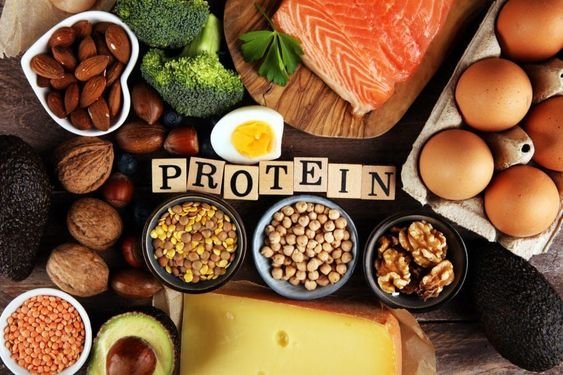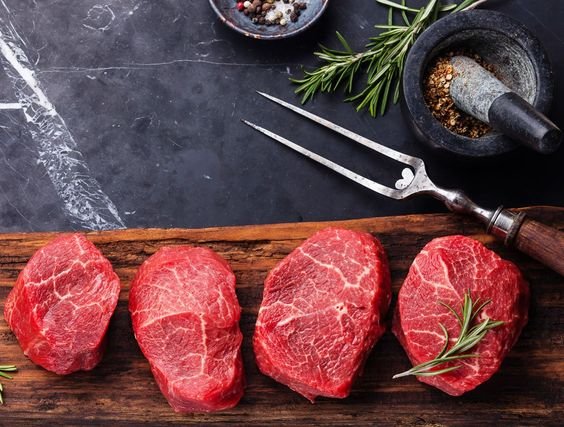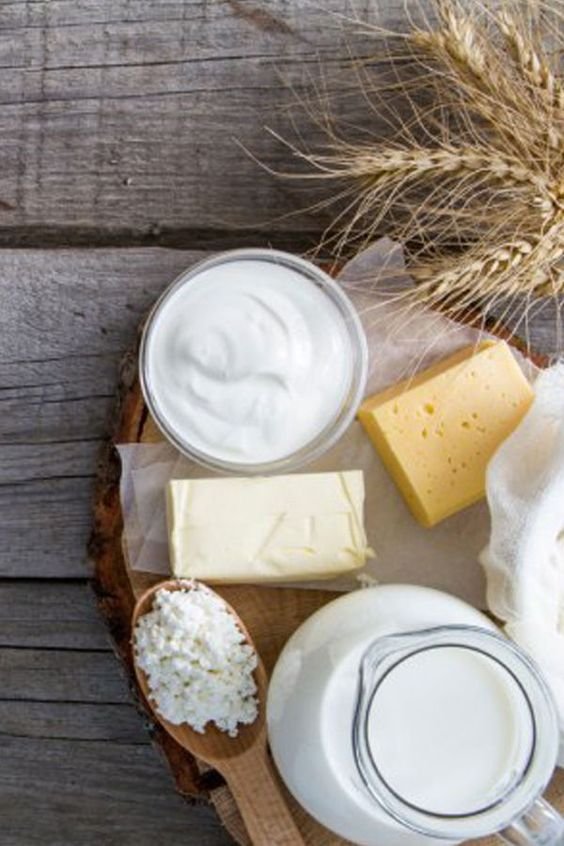
Lean protein refers to protein sources that contain relatively low amounts of fat compared to their protein content. These types of proteins are highly valued in various dietary and fitness regimens due to their numerous health benefits. Incorporating lean protein into your diet can support muscle growth, aid in weight management, and contribute to overall health and well-being. One of the primary advantages of lean protein is its role in muscle building and repair. Proteins are made up of amino acids, which are the building blocks of muscle tissue. When you consume lean protein, your body can efficiently utilize these amino acids to repair and rebuild muscle fibers that may have been damaged during exercise or daily activities. This process is essential for increasing muscle mass and strength, making lean protein an essential component of any muscle-building or strength-training program. IN addition to supporting muscle growth, lean protein can also help with weight management. Protein is known for its ability to promote feelings of fullness and satiety, which can help reduce overall calorie intake and prevent overeating. By incorporating lean protein into meals and snacks, you can better control hunger and cravings, making it easier to maintain a healthy weight or achieve weight loss goals. Furthermore, lean protein sources often contain essential nutrients such as vitamins, minerals, and antioxidants that are beneficial for overall health. For example, skinless poultry, fish, and tofu are all excellent sources of lean protein that also provide important nutrients like vitamin B12, zinc, and omega-3 fatty acids. These nutrients play various roles in supporting immune function, promoting cardiovascular health, and reducing the risk of chronic diseases such as diabetes and cancer. Another advantage of lean protein is its versatility and ease of incorporation into a balanced diet. Lean protein sources come in a variety of forms, including poultry, fish, lean cuts of meat, eggs, dairy products, legumes, and plant-based proteins such as tofu and tempeh. This diversity allows individuals to choose from a wide range of options based on personal preferences, dietary restrictions, and culinary preferences. It’s important to note that while lean protein is beneficial for overall health, it’s also essential to consume a balanced diet that includes a variety of nutrient-rich foods from all food groups. In addition to lean protein, incorporating plenty of fruits, vegetables, whole grains, and healthy fats into your diet can provide essential nutrients and promote optimal health.
Chicken breast:
Skinless, boneless chicken breast is a popular choice for individuals seeking a lean source of protein due to its low fat content and high protein content. This particular cut of chicken is derived from the breast area of the bird, where the meat is naturally leaner compared to other parts of the chicken. Its lack of skin and bones further contributes to its reputation as a lean protein option. One of the primary reasons why skinless, boneless chicken breast is favored by many is its nutritional profile. It is notably low in fat, particularly saturated fat, which is known to contribute to various health concerns when consumed in excess, such as heart disease. This makes it an ideal choice for individuals aiming to manage their fat intake or maintain a healthy weight. IN addition to being low in fat, skinless, boneless chicken breast is also high in protein. Protein is an essential macronutrient that plays a crucial role in various bodily functions, including muscle repair and growth, immune function, and hormone production. Consuming an adequate amount of protein is particularly important for individuals engaged in regular physical activity, such as athletes or those who participate in strength training, as it supports muscle recovery and development. Furthermore, chicken breast is a complete protein source, meaning it contains all nine essential amino acids that the body cannot produce on its own and must obtain from dietary sources. These amino acids are the building blocks of protein and are necessary for the synthesis of new proteins within the body, including those involved in muscle tissue repair and growth. Another advantage of skinless, boneless chicken breast is its versatility in cooking. It can be prepared in numerous ways, including grilling, baking, sautéing, or poaching, allowing individuals to incorporate it into a wide variety of dishes to suit their preferences and dietary needs. Whether seasoned with herbs and spices, marinated in a flavorful sauce, or added to salads, soups, or stir-fries, chicken breast can be adapted to accommodate different culinary styles and cuisines Moreover, chicken breast is relatively affordable and readily available in most grocery stores, making it a convenient option for individuals looking to maintain a balanced diet without breaking the bank. It can be purchased fresh or frozen, providing flexibility in meal planning and storage. Overall, skinless, boneless chicken breast offers a combination of nutritional benefits, including being low in fat, high in protein, and versatile in cooking applications. Incorporating this lean protein source into a well-rounded diet can contribute to overall health and wellness goals, whether they involve weight management, muscle building, or simply enjoying delicious and nutritious meals.

Fish:
Fish, including varieties such as cod, tilapia, and tuna, stand out as excellent sources of lean protein, offering a multitude of health benefits. One of the most prominent advantages lies in their high content of omega-3 fatty acids, compounds renowned for their positive impact on heart health and overall well-being. Firstly, let’s delve into the significance of lean protein. Fish are considered lean sources of protein because they contain relatively low levels of fat compared to other protein-rich foods like red meat. This characteristic makes them particularly appealing for individuals looking to maintain a healthy weight or reduce their intake of saturated fats, which are linked to various health concerns such as heart disease and obesity. Moreover, the protein found in fish is of high quality, meaning it provides all the essential amino acids required by the body for functions like muscle repair, immune support, and hormone regulation. This makes fish an excellent option for athletes, individuals engaged in regular exercise, or anyone seeking to optimize their nutrition. Beyond their protein content, fish are renowned for their abundance of omega-3 fatty acids, which are crucial for maintaining optimal heart health. Omega-3s are a type of polyunsaturated fat known to reduce inflammation, lower triglyceride levels, and decrease the risk of cardiovascular diseases such as heart attacks and strokes. Incorporating fish into one’s diet regularly can contribute significantly to achieving and maintaining a healthy lipid profile and overall cardiovascular well-being. Additionally, omega-3 fatty acids offer a range of other health benefits beyond cardiovascular support. They play a role in brain function and development, with research suggesting they may help improve cognitive function and reduce the risk of neurodegenerative diseases like Alzheimer’s. Omega-3s also exhibit anti-inflammatory properties, potentially alleviating symptoms of conditions such as arthritis and promoting joint health. It’s worth noting that different types of fish contain varying levels of omega-3 fatty acids, with oily fish like salmon, mackerel, and sardines generally being the richest sources. However, even leaner options like cod, tilapia, and tuna still provide valuable amounts of these beneficial fats, making them valuable additions to a balanced diet.

Lean cuts of beef, including sirloin, tenderloin, and round steak, are known for their lower fat content in comparison to fattier cuts like ribeye or T-bone steak. This difference in fat content primarily arises due to the location of these cuts within the animal’s body and the composition of the muscle tissue. Sirloin, tenderloin, and round steak are sourced from parts of the animal that have less marbling, which refers to the intramuscular fat distributed throughout the meat. These lean cuts typically come from areas of the animal that are subjected to more movement and exercise, leading to a lower fat content. For instance, the sirloin is located in the hindquarters and consists of relatively lean muscle. Similarly, the tenderloin, often regarded as one of the leanest cuts, is found along the backbone and is not heavily marbled. Round steak, derived from the rear leg of the animal, also tends to be leaner due to the muscles’ active use. IN contrast, ribeye and T-bone steak come from areas of the animal that are less exercised, resulting in more fat deposition within the muscle tissue. Ribeye steak, cut from the rib section, contains more marbling, contributing to its rich flavor and tenderness but also increasing its fat content. T-bone steak, which includes a portion of both the strip loin and tenderloin, may have a higher fat content due to the presence of the tenderloin and its associated marbling. The differences in fat content between lean and fattier cuts of beef can impact not only the taste and texture but also the nutritional profile. Lean cuts are often preferred by those seeking to reduce their intake of saturated fats and calories while still enjoying the flavor and benefits of beef. They are commonly recommended for individuals following certain dietary guidelines, such as those aimed at managing weight or promoting heart health. Overall, the distinction between lean and fatty cuts of beef is influenced by factors such as the location of the cut within the animal, the level of marbling, and the associated muscle activity. Choosing lean cuts like sirloin, tenderloin, or round steak can provide a flavorful and nutritious option for incorporating beef into a balanced diet.

Eggs:
Eggs are widely recognized as a versatile and affordable source of protein that can be incorporated into a variety of dishes and meals. They are not only nutritious but also offer numerous culinary possibilities, making them a staple in many diets around the world. One of the key benefits of eggs is their high protein content. Protein is essential for building and repairing tissues, supporting muscle growth, and maintaining overall health. Consuming an adequate amount of protein is particularly important for those who lead active lifestyles or engage in regular exercise, as it helps support muscle recovery and development. While whole eggs are a nutritious choice, they also contain fat, primarily in the yolk. For individuals looking to reduce their fat intake, opting for egg whites over whole eggs can be a favorable option. Egg whites are virtually fat-free and contain the majority of the egg’s protein content. By choosing egg whites, individuals can still benefit from the protein while minimizing their fat intake. Moreover, egg whites are incredibly versatile and can be incorporated into a wide range of dishes. They can be scrambled, poached, boiled, or used as an ingredient in various recipes such as omelets, frittatas, and baked goods. Their neutral flavor allows them to complement both savory and sweet dishes, making them a versatile ingredient in the kitchen. IN addition to their protein content, eggs are also a good source of essential vitamins and minerals. They contain nutrients such as vitamin B12, which is important for nerve function and energy production, as well as vitamin D, which plays a role in bone health and immune function. Eggs also provide important minerals like iron, which is necessary for oxygen transport in the body, and selenium, which acts as an antioxidant and supports thyroid health. Furthermore, eggs are relatively inexpensive and widely available, making them an accessible source of nutrition for individuals of all socioeconomic backgrounds. Their affordability makes them a practical option for those looking to incorporate high-quality protein into their diets without breaking the bank. Overall, eggs offer a host of nutritional benefits, including their high protein content, versatility in cooking, and affordability. Whether enjoyed on their own or incorporated into various recipes, eggs are a valuable addition to any diet, providing essential nutrients to support overall health and well-being.

Greek yogurt:
Greek yogurt is a strained yogurt that has been popular for centuries in Mediterranean cuisine. Its unique production process involves removing the whey, resulting in a thicker, creamier texture compared to regular yogurt. One of its most notable characteristics is its high protein content. Greek yogurt typically contains double the protein found in regular yogurt due to the straining process, making it an excellent choice for individuals looking to increase their protein intake. Additionally, Greek yogurt tends to be lower in fat than regular yogurt. This is because the straining process removes much of the liquid whey, which also reduces the fat content. As a result, Greek yogurt provides a rich source of protein without significantly contributing to your daily fat intake. The combination of high protein and low fat makes Greek yogurt an ideal option for those seeking a lean protein source. Whether you’re looking to build muscle, maintain a healthy weight, or simply add more protein to your diet, incorporating Greek yogurt can be a convenient and nutritious choice. Beyond its nutritional benefits, Greek yogurt is also versatile and can be enjoyed in various ways. It can be eaten plain, mixed with fruits or honey for added flavor, used as a creamy base for sauces and dips, or even incorporated into baked goods for added moisture and protein Overall, Greek yogurt stands out as a nutritious option that not only provides essential nutrients like protein but also offers versatility and flavor, making it a staple in many healthy diets.

Cottage cheese:
Cottage cheese is a versatile and nutritious dairy product that has gained popularity for its low-fat content and high protein content, making it a favored choice for individuals looking for healthy and lean protein options. This cheese is made by curdling milk, typically from cows, with an acidic substance such as vinegar or lemon juice. The curds are then drained, leaving behind the characteristic lumpy texture that defines cottage cheese. One of the primary reasons cottage cheese is praised for its health benefits is its low-fat content. Unlike many other types of cheese, which can be high in saturated fats, cottage cheese contains minimal amounts of fat. This makes it an excellent choice for individuals looking to reduce their overall fat intake, especially those following a low-fat diet or trying to manage their weight. Furthermore, cottage cheese is rich in protein, which is essential for various bodily functions, including muscle growth, repair, and maintenance. Protein is also known for its ability to keep you feeling full and satisfied, making cottage cheese a great option for those looking to manage their appetite and support their weight loss or maintenance goals. In addition to being low in fat and high in protein, cottage cheese is also a good source of other essential nutrients. It contains calcium, which is crucial for maintaining strong bones and teeth, as well as phosphorus, which plays a role in energy metabolism and bone health. Cottage cheese also provides vitamins such as riboflavin (vitamin B2), which is important for energy production, and vitamin B12, which is necessary for nerve function and the formation of red blood cells. Another benefit of cottage cheese is its versatility. It can be enjoyed on its own as a snack or incorporated into a wide range of dishes, both savory and sweet. For example, cottage cheese can be used as a topping for salads or baked potatoes, mixed into smoothies or dips, or even used as a filling for pancakes or crepes. Overall, cottage cheese is a nutritious and delicious food that offers a range of health benefits. Its low-fat, high-protein content, along with its versatility, make it a popular choice among individuals looking to maintain a healthy diet and lifestyle. Whether enjoyed on its own or as part of a meal or recipe, cottage cheese is a satisfying and nutritious addition to any diet.

